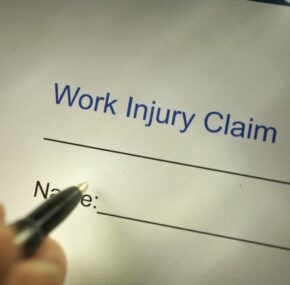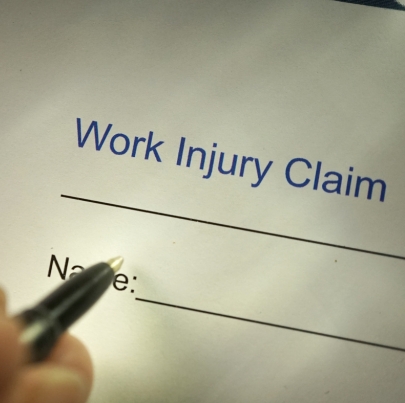A workers’ compensation claim in Illinois can stay open for several months or years. If a worker is receiving ongoing medical treatment for a chronic injury or illness related to his or her job, for example, his or her claim may remain open until he or she is no longer receiving treatment or he or she reaches maximum medical improvement. The length of time that a claim can stay open will vary depending on the nature and severity of the injury, as well as the worker’s age and health.

What Is the Time Limit for Filing a Workers’ Comp Claim?
According to the Illinois Workers’ Compensation Act, the statute of limitations for filing a workers’ compensation claim in Illinois is three years from the date of the injury or two years from the date of the last payment of benefits, whichever is later. This means a worker must file a claim within three years of being injured, or within two years of the last time they received benefits for that injury.
There are some exceptions to this general time limit. For example, if the injury is related to radiation exposure, the time limit for filing a claim is 25 years from the last date of exposure. Similarly, if the injury is related to exposure to asbestos or other toxic substances, the time limit for filing a claim may be longer.
If you have suffered a workplace injury or illness, file your workers’ compensation claim as soon as possible after the accident or injury occurs, as there may be additional steps you need to take to ensure that your claim is successful. You may need to hire the best workers’ compensation lawyer to ensure you obtain a favorable outcome.
Filing a Workers’ Comp Claim in Illinois
If you’ve been injured on the job in Illinois, you may wonder how to file a workers’ compensation claim in Illinois. The first thing you will need to do is report the injury to your employer. You can do this verbally or in writing. If you don’t report your injury within 45 days of the accident, you may lose your right to workers’ compensation benefits.
You should seek medical attention for your injury as soon as possible. Make sure to tell your healthcare provider that your injury occurred on the job. Your employer should provide you with a claim form to fill out. If they don’t, you can download one from the Illinois Workers’ Compensation Commission’s website. Fill out the form completely and accurately, and make sure to sign it. You should submit the completed claim form to your employer or their workers’ compensation insurance provider. Keep a copy of the form for your records. The insurance company will review your claim and decide whether to accept or deny it. If they accept your claim, they will begin providing benefits. If they deny your claim, you can appeal the decision by filing an appeal with the Illinois Workers’ Compensation Commission.
The process of filing a workers’ compensation claim in Illinois can be complicated. If you have any questions or concerns, it’s a good idea to consult with an experienced workplace injury attorney who can help guide you through the process.
Disability Benefits Received Under Workers’ Comp
Workers’ comp benefits are designed to help the injured worker cover his or her medical expenses and lost wages while he or she is unable to work. Workers’ comp benefits should cover all the expenses related to your on the job injury, including:
- medical expenses
- worker’s comp lost wage benefits
- vocational rehabilitation benefits
- death benefits
- Any other costs that were a direct result of the injury
There are four main types of disability benefits that are available under workers’ compensation. These include temporary total disability benefits, temporary partial disability benefits, permanent partial disability benefits, and permanent total disability benefits. Which benefits a claimant qualifies for depends on how long he or she is forced to miss work due to the injury.
Temporary Total Disability Benefits
Temporary total disability benefits are paid to injured workers who are temporarily unable to work due to their injury or illness. These benefits typically replace a portion of the worker’s lost wages and are paid until the worker is able to return to work or reaches maximum medical improvement.
Temporary Partial Disability Benefits
Temporary partial disability benefits are paid to injured workers who are able to return to work in a reduced capacity or with restrictions. These benefits typically replace a portion of the worker’s lost wages and are paid until the worker is able to return to his or her pre-injury job. Workers with a temporary partial disability may be assigned to perform light-duty work or they may need to work part-time while they recover from their injuries.
Permanent Partial Disability Benefits
Permanent partial disability benefits are paid to injured workers who have suffered a permanent impairment but are still able to work. The amount of the benefit is determined by the degree of impairment and the worker’s pre-injury wages.
Permanent Total Disability Benefits
Permanent total disability benefits are paid to injured workers who are permanently and totally disabled and unable to work due to their injury or illness. The amount of the benefit is determined by the worker’s pre-injury wages. If it is determined that your injury qualifies as a permanent total disability, you are usually eligible to receive compensation for the remainder of your life.
How a Workers’ Comp Case Is Resolved Will Impact How Long the Claim Remains Open
When a worker is injured on the job, one pressing concern is how long it will take for his or her workers’ compensation claim to be resolved. The length of time that a workers’ comp claim remains open can depend on a variety of factors, including the severity of the injury, the complexity of the case, and how the case is resolved. There are typically two ways that a workers’ comp case can be resolved: through a settlement or through a hearing.
A settlement is an agreement between the injured worker and the workers’ compensation insurance company that resolves the case outside of court. In a settlement, the injured worker agrees to accept a certain amount of money in exchange for giving up his or her right to pursue further legal action against the insurance company. Settlements can be a good option for injured workers who want to avoid a lengthy court battle and are willing to accept a lump sum payment to cover their medical expenses and lost wages.
If a settlement is reached, the workers’ comp claim will typically be closed within a few weeks or months of the agreement being signed. However, the timeline for closing a claim can vary depending on the terms of the settlement and the requirements of the state where the claim is being filed.
If a settlement cannot be reached, the case will proceed to a hearing. In a workers’ comp hearing, a judge will hear evidence from both sides and make a decision about whether the injured worker is entitled to benefits. Hearings can be lengthy, and may involve multiple witnesses and expert testimony.
If the judge rules in favor of the injured worker, the workers’ comp claim will remain open until the injured worker has received all the benefits he or she is entitled to under the law. This can include coverage for medical expenses, lost wages, and any other expenses related to the injury.
If the judge rules in favor of the workers’ compensation insurance company, the injured worker may choose to appeal the decision to a higher court. If an appeal is filed, the workers’ comp claim will remain open until the appeal is resolved.
In addition to the resolution of the case, there are other factors that can impact how long a workers’ comp claim remains open. For example, if the injured worker requires ongoing medical treatment, the claim will remain open until the treatment is completed and the worker has fully recovered. Similarly, if the injured worker is unable to return to work due to their injury, the claim may remain open until the worker is able to return to his or her job or until he or she reaches maximum medical improvement.
Overall, the length of time that a workers’ comp claim remains open will depend on the severity of the injury, the complexity of the case, and how the case is resolved. In general, settlements tend to result in faster resolution of workers’ comp claims, while hearings can be more time-consuming and may result in the claim remaining open for a longer period of time. However, every case is unique, and the timeline for resolving a workers’ comp claim will depend on the specific circumstances of the case.







